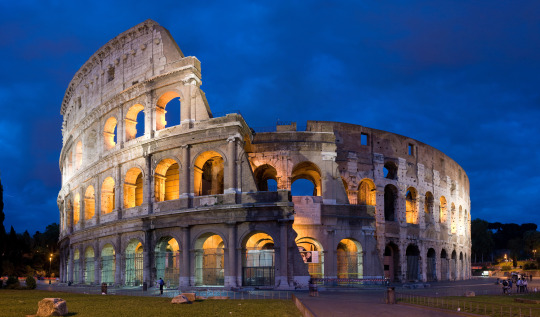Text
The Penelopiad

A. Author’s Background

Margaret Atwood is a Canadian poet, novelist, literary critic, essayist, inventor, and environmental activist.
She is also a founder of the Writers' Trust of Canada, a non-profit literary organization that seeks to encourage Canada's writing community. Among innumerable contributions to Canadian literature, she was a founding trustee of the Griffin Poetry Prize.
She was born in Ottawa, Ontario, Canada, as the second of three children She became an avid reader of literature, Dell pocketbook mysteries, Grimm's Fairy Tales, Canadian animal stories, and comic books. She attended Leaside High School in Leaside, Toronto, and graduated in 1957.Atwood began writing plays and poems at the age of six.
Atwood realized she wanted to write professionally when she was 16. She began studying at Victoria College in the University of Toronto, where she published poems and articles. She graduated in 1961 with a Bachelor of Arts in English (honours) and minors in philosophy and French.
B. Summary
Penelope started to learn about everything that happened in her life when she died. She was the wife of the hero Odysseus. She was celebrated for her faithfulness, patience and feminine virtue. When Odysseus was away for several years due to a war, Penelope remained faithful to her husband, even to the point of stalling her suitors by “weaving a web.” However, things started to be revealed to her the day she died. She arrived in the underworld learning about the words she’s spoken in life, words she’s heard, words that have been said about her, but most are those regarding her husband. She learns of how much people have jeered at her or made several stories about her, or made her seem unfaithful. She then reflects on how she turned a blind eye against all these because she knows she was in love. She wanted a happy ending, but everything turned the other way around. After that, she wanted to redeem her image, the image that was tainted by several stories passed on and exaggerated from mouth to mouth.
Unlocking of words
Minstrel - a medieval singer or musician, especially one who sang or recited lyric or heroic poetry to a musical accompaniment for the nobility.
Example: If Penelope were a minstrel, she’d be a low class citizen.
Factoids - a brief or trivial item of news or information / an assumption or speculation that is reported and repeated so often that it becomes accepted as fact.
Example: Odysseus’ versions of stories were considered factoids by the people.
Plausible - (of an argument or statement) seeming reasonable or probable / (of a person) skilled at producing persuasive arguments, especially ones intended to deceive.
Example: Odysseus is a plausible liar.
Edifying - Providing moral or intellectual instruction.
Example: Odysseus’ adventures served as edifying stories to the people.
Unscrupulousness - Having or showing no moral principles; not honest or fair.
Example: Odysseus’ unscrupulousness is something that is hidden from the eyes of the majority.
Inklings - A slight knowledge or suspicion; a hint.
Example: Penelope’s inklings about Odysseus made her to initially question their relationship before deciding to turn a blind eye.
Compulsion- The action or state of forcing or being forced to do something; constraint / an irresistible urge to behave in a certain way, especially against one's conscious wishes.
Example: Penelope tried hard to hide her compulsion from her suitors.
Preposterous – contrary to nature, reason, or common sense
Example: The idea of Odysseus being an entirely different man may sound preposterous to people.
Jeering – to speak or to cry out with mockery.
Example: Because Penelope’s story was shrouded, she was a victim of jeering from the public.
Eminent - (of a person) famous and respected within a\particular sphere or profession.
Example: Odysseus is an eminent hero which is why he is very respected by his people.
A. Guide Questions with Answers
1. Why does Penelope consider storytelling “low art?”
Penelope calls story-telling “low-art” because stories, most of the time move or play with play with people’s emotions whether or not it’s real or fake. People will believe what seems to be true to them. Stories can also appear to be true with the use of emotions and the right amount of fake proofs. Once it passes from one mouth, it can be exaggerated by the next one, therefore gradually twisting what’s actually real. In other words, it can be biased. In the excerpt, the people believed in Odysseus’ versions (or his lies) of the stories more since he’s also a hero, than Penelope’s, which are the real ones. Several stories about Penelope then started passing from mouth to mouth, all of them horribly exaggerated.
2. How does Penelope’s portrayal differ from the traditional portrayal of Odysseus? What do you think of Odysseus?
Penelope portrays Odysseus as a prideful, trickster, and scheming man, while the classical version portrayed him as a very brave hero. With Penelope’s point of view, I think Odysseus is more complex than he is, that there is something more in his head than what people believe.
3. Based on Penelope’s perspective, how is she different from how the epic portrays her? What do you think of Penelope’s character in the preceding story?
Penelope’s character is more complex in the contemporary version than the classical one. This is because we get to see what’s going on inside her head—her thoughts and opinions with what’s going on around her. In this version, she is a very conflicted woman whose emotions are building up inside of her. On the classical version however, Penelope was celebrated for her faithfulness, patience, calm demeanor and feminine virtue. When Odysseus was away for war, Penelope made sure to keep the kingdom from falling to another man’s hands. Though she received hundreds of attention from potential suitors, Penelope still remained faithful and believed of her husband’s return. I think Penelope is a very wise and intelligent woman, especially considered that she managed to stall hundreds of suitors and kept the kingdom stable for many years though it wasn't hers to being with.
4. What does she have to say about the “official version” of what happened? Why does she point this out?
The “official version” describes the things that actually happened. She pointed this out because those are the things she wishes people should have heard. Because they are the truth.
5. Why does she call herself “a stick to beat other women with”? do you agree with her? Why or why not?
She described herself as a stick to beat other women with because of how she was portrayed as an ideal woman, or a true role model.
I do agree with her that she’s pictured as the perfect woman, but didn’t want other women to be blinded by it. She wanted to show them that they should have power too, and not pressure themselves to follow her. But people didn’t take this very seriously, and she was often ridiculed.
This is actually still happening in today’s society wherein you are considered ideal if you met the standards. Such standards for women include femininity and gentleness, which is something I don’t wholly agree to be the ideal characteristic of a woman.
6. Why does Penelope say that “she sounds like an owl” when she tries to warn other women?
According to ancient Greek myths, an owl represents Athena, the goddess of war and wisdom. However if it hoots, it is considered a bad omen like death. Penelope described herself as sounding like an owl because she can’t be heard or taken seriously already, most likely because she’s already dead.
On another note, an owl can hoot in the night and can be ignored because it is already natural for them to make sounds during those hours. Like an owl, she was also ignored of the things she wishes people would hear.
7. How much of Ancient history do you think is fact and how much on gossip and exaggeration?
This is something I have always thought about for some time in my life, and I do believe that much of what’s written in our history books can be biases. There is a quote saying “History is always written by the winners.” These winners glorify their success and disparage the conquered foe. This means that we’re only seeing a fraction of what actually happened in the past, and we’re commonly seeing history from the winner’s perspective, completely erasing the thoughts, or motives of the defeated. In relation to the excerpt, written history says that Odysseus possess the quality of courage, determination, and cleverness. These may be true, but with those, people would be lead to believe that he is a good man. That is the fraction that is seen in history. The winner. What the defeated—Penelope wasn’t able to tell others was how much Odysseus was a tricky, scheming man, that also lead her to doubt their relationship but chose to ignore it, because she was in love.
8. Do you think a story is colored by the biases of the storyteller? Support your answer
Some authors might, and write stories based on their own biases. However I do not entirely believe that every story is written with them. There are writers who try to go beyond their comfort zones and try to express and explore ideas from other perspectives.
9. Do you think history is colored by the biases of the historian? Support your answer
Not all. Yes there are various evidences that support various events in history, but I don’t think everything in history is what they seem to be. Like the quote that says “History is always written by the winners,” we usually see history by what documents are provided. These documents however are often written by those winners, completely obscuring the thoughts or facts of the defeated. For example if history says Person A is a traitor, then we as readers will be lead to believe that Person A is a traitor. But that could possibly be a fraction of history. Person A could have been manipulated or blackmailed to do such things has an internal conflict or any other problems that was left undocumented.
10. Does this story change the way you look at literature and history? Why or why not?
No it does not. I have already learned even back when I was young not to ultimately believe the whole presented picture of what happened just because some people who never witnessed it believed it, or a book said it. The world is big and there will always be those things that we’ll never know about, so it’s never safe to say that just because that’s what’s written about history, that’s actually what happened as a whole. Like the excerpt, stories passed from mouth to mouth can be exaggerated and twisted, and several things may have happened in the past for several years (e.g. manipulation or bribery to write false accounts, undocumented scams, etc) that shaped what we believe today. In other words, there are things that happened in the background that may have changed the story as a whole if they were recognized. I still appreciate literature and history though, because it has always been a part of us. Without history, we wouldn't be where we are now.
INDIVIDUAL REFLECTION
The excerpt made me think about how I try to see or perceive people. I somehow just realized that it is oftentimes the people who we don’t know so much about who we tend to judge. When we know someone entirely, most of the time it’s easier for us to forgive them because we know them so much—from their habits, to their flaws, we all come to accept it. In the excerpt, Penelope was considered as Odysseus’ wife, and therefore probably a less important person / character. With that, she was then subjected to various false stories, all probably made to spite her. All of us have our own stories and backgrounds, which often aid us to what we do in the future. This has made me realize that maybe I should try reaching out or understand a person’s standing first before arriving at a conclusion. No one is wholly perfect or evil, and it is on our part to try to understand our differences.
0 notes
Text
Marvels of the World

The Eiffel Tower
What it is to me
The Eiffel Tower is the most famous landmark of France, and it is often regarded (especially from Hollywood film I’ve seen) as an iconic symbol for lovers. It is also one of the world’s attractions that I would love to visit one day.
What it is to the people
The Eiffel Tower is the global cultural icon and a pride of France, and one of the most recognizable structures in the world. It’s also one of the most paid tourist attractions in the world.
Intersections
The Eiffel tower is the famous global cultural icon of France. The tower is most often regarded as a symbol for lovers as it is also the icon of Paris, commonly called as the city of love because of its people’s native language, its sights, and popularity as a honeymoon destination.

The Taj Mahal
What it is to me
The Taj Mahal is a beautiful palace-like structure in India.
What it is to the people
For the people of India, the Taj Mahal is a mausoleum commissioned by the Mughal emperor, Shah Jahan, to house the tomb of his favourite wife, Mumtaz Mahal.
Intersections:
The Taj Mahal is a beautiful mable mausoleum in India, commissioned by an Empror to house the tomb of his favorite wife. The Taj Mahal was designated as a UNESCO World Heritage Site for being "the jewel of Muslim art in India and one of the universally admired masterpieces of the world's heritage"

The Great wall of China
What it is to me
The Great Wall of China holds a significance of Chinese culture and history. It’s also a very impressive structure because as far as I know, the great wall dates as far back as Ancient times, and it’s still preserved until today. It’s also one of the places I've always wanted to visit.
What it is to the people
For the people of China, the Great Wall is a historic structure built by the Chu state and united during the Qin Dynasty to defend the kingdom from northern invaders. Today, the Great wall is considered as the one of the most impressive architectural feats in history.
Intersections
The great wall of China does hold a significance of Chinese culture and history, as it dates back as far as the Qin dynasty. Though some areas of the wall have cracked, the people of China made sure to preserve it for centuries to come.

Pyramids of Egypt
What it is to me
The Pyramids of Egypt are very impressive structures especially considering that they were built during the Ancient times. Because of its impressive architectural design, people have also made theories about extraterrestrial beings involved during it construction.
What it is to the people
The pyramids of Egypt hold the culture of Ancient Egyptians. The pyramids are also known to have been built by slaves, and are used to bury iconic figures of Ancient Egypt.
Intersections
The pyramids of Egypt are also considered one of the most impressive architectural feats in history. The pyramids were also known to have been built by slaves, who several of them died during its construction.

The Roman Colosseum
What it is to me
The Roman Colosseum is the iconic beautiful museum built during the Ancient times in Rome, and is still one of Rome’s most visited attraction. Though part of it has already cracked, my interest in Ancient Roman culture is what drives me to visit the site one day.
What it is to the people
For the people of Italy, the Roman Colosseum is an Ancient amphitheater, and is the Ancient Romans’ getaway for recreation and entertainment. It held gladiatorial battles, animal hunt, re-enactment of famous battles, and dramas based on Classical mythology. Although ruined, it is still an iconic symbol on Imperial Rome, and is still one of Rome’s most popular tourist attractions.
Intersections
The Roman Colosseum was built during the Ancient times and was commonly used to host various events, especially for entertainment purposes. Though a part of the Colosseum is already destroyed, it is still one of Rome’s iconic symbols and most visited attraction site due to its history.

Mount Everest
What it is to me
The Mount Everest is probably one of the most beautiful snow capped mountains in the world. Because of its reputation as Earth’s highest peak, it attracts a lot of climbers or mountaineers. These climbers compete against each other to claim the title of the highest hike on Mount Everest.
What it is to the people
For the people of Nepal, especially the government, Mount Everest is one of their most treasured sights, as its beauty and record of being Earth’s highest peak makes the mountain their biggest source of money from the tourism industry. Being one of the world’s poorest countries, Mount Everest’s attraction to Nepal’s tourism significantly benefited the country’s economy.
Intersections
Mount Everest is the world’s highest peak, and because of that, attracts a lot of climbers from around the world. The influx of tourists and climbers trying to get a look at Earth’s highest peak contributes to Nepal’s tourism industry and economy.

The Northern lights
What it is to me
The Northern lights are very beautiful colorful lights that can only be seen in the Arctic and Antarctic regions. It’s also one of the things that make these regions unique. This is also why I've always wanted to see them for myself one day.
What it is to the people
The Northern lights are naturally occurring lights that makes their night sky unique. Some cultures especially those of Inuit culture and background associate the lights with spirits.
Intersection
The Northern lights are beautiful naturally occurring lights that make the night sky in the North and South hemisphere unique. This uniqueness attracts a lot of interest from people not living in the regions. These lights however, after existing for so many years also have some significance in the Inuit culture, which is something tourists might find interesting.
0 notes
Text
The Valley of Amazement

Valley of Amazement
A. Author’s Background
Amy Tan is an American writer whose works explore mother-daughter relationships and the Chinese American experience. Born in Oakland, California, she is the second of three children born to Chinese immigrants John and Daisy Tan. She received bachelors and master's degrees in English and linguistics from San Jose State University. She also participated in doctoral studies in linguistics, but later abandoned her doctoral studies.
While in school, Tan worked several jobs, from serving as a switchboard operator, carhop, bartender, and pizza maker, before starting a writing career.
B. Summary
As a young girl, Lulu made the decision to be her true self. However, the sudden news of her once having extra fingers and have them forcibly removed from her without her knowledge made her doubt about the things in her life. It also made her afraid of how much people can easily judge her, deem her unworthy and ultimately take charge on what’s going to happen to her body.
C. Guide Questions :
1. What was Lulu’s reaction when she found out about the operation? Do you think her reaction is normal? Why or why not?
She was in disbelief, as seen in the line “Few can understand the shock of a little girl learning that part of her was considered undesirable and thus needed to be completely removed. It made me fearful that people could change parts of me, without my knowledge or permission.” Her reaction after learning the truth was normal and expected. Learning that you once have something, but people hated it so much that they have to forcibly remove it from you, will most expectedly make you feel like you have no control of your own self, and that how you should live is dictated by others.
2. Do you think the parents made a mistake in operating on Lulu’s fingers? Why or why not?
In my opinion, they made a mistake they operated on Lulu’s fingers without her consent. They would have waited for their child to know about herself before bringing to a conclusion. If it isn’t any life threatening, they would have waited to let their daughter know about herself.
3. What is the narrator’s fear?
The narrator feared everything about being unable to control what’s hers, and stick to following set rules by other people. She feared on how she will easily be judged as ugly by other people and do whatever they want with her body without her consent.
4. Why did the narrator dislike the way her mother described reproduction?
Her mother described reproduction and her formation and birth as something that’s so innate, it made her feel like she existed by chance.
5. What do you think is its effect on the narrator?
It made her feel like her life came by chance and that she may be useless in the world.
6. What does it mean that the narrator wanted to be true to herself?
The narrator wanted to know herself—her likes, dislikes, personality, other people’s opinions, etc. –and learn how to express them honestly to others. She doesn’t want to have anything with her changed because that’s her and that’s what she is made of.
7. Have you ever felt the same way? Why or why not?
Yes, and I believe everyone has. Whether we like it or not, we cannot deny the fact that this world has its own expectations and standards. Without reaching those standards, people can go against you or force you to give up some things to meet those standards. For me, there are times where I have to forcibly give up things and pretend in order to be accepted by my peers. From my interests to private life, there are some things I pretended to be in order feel belonged.
8. Do you think the narrator is selfish? Why or why not?
No we do not think it’s selfish. When you know you once had something and had it forcibly removed from you without your knowledge, it would be natural for you to have at least an initial thought of having it back.
9. Is the narrator expressing an inherently Asian or American value? Explain your answer.
The narrator is mostly expressing an American value. American values tend to follow the views of individualism and liberalism, which usually focuses on self interests or benefits and the openness to new ideas of living respectively. Lulu was determined to be true to herself and express herself individually. She also wouldn’t have mind living with extra fingers, which is usually considered odd especially in Asian cultures wherein society leans more on the collectivistic and the traditional way of living.
10. Do childhood revelations have lasting impact on one’s life?
Yes. Childhood revelations do have a lasting significant impact on a person’s life. Oftentimes, when you suddenly learn something about your childhood that you have never learned about would make you feel like you’re living a whole life of lie. It would get you to reflect how much lies or truth are being said to you. Even if these things are being told earlier, it would still leave a mark on someone.
D. Individual reflection
The excerpt tells how much standards can alter how a person sees him or herself, or how oddities are being considered in this society as a limitation to development of people’s skills. It had also made me think about how much I’m changing and masking myself in order please others. That much however, I’m sure is not only limited to me, but to all people. We live in a world where standards are set out in order to succeed, or gain recognition. This is how we start to change or even mask ourselves to meet those standards. When that happens, most of the time we aren’t being true to ourselves. We become identical to robot-like creatures—living the lives of others, have our true selves ripped from us—so long as it keeps us alive. However, this doesn’t mean that there are also people out there fighting for themselves. I realized that people who know their own selves better—from likes to dislikes or strengths and weaknesses—are often the ones who are happier with their lives, because they no longer let others take charge of their lives.
In another note, in relation to our relationship with our family, it is expected that our parents will always have expectations from us. When those expectations aren’t met, then disappointment from the family will follow. However, I always believed in fighting for what you want and enjoy to do in life, as it’s always your passion and hard work and makes you succeed. If the family forces one to do something they aren’t comfortable doing then that person has the right to fight for what he wants. If you dictate your life based on someone else, then you aren’t living your life. You are living theirs.
0 notes